Ultimate Muscle Recovery Supplements Guide
Author:
Reviewed by:
(Certified Nutritionist, S&C specialist, M.Sc.Eng. Biotechnology)
Unlock your full potential by engaging with our experts and community! Have questions about your fitness journey or looking for expert advice on weightlifting techniques? Don’t hesitate — leave a comment below and Oleksandr Maksymenko will provide a personalized answer and insights to help you reach your goals.
Torokhtiy is reader-supported. Some links are affiliate links, and we may earn a commission at no extra cost to you. See our disclosure page for details.
After an intense workout, the key to making progress and avoiding injuries is muscle recovery. This is where supplements come in handy, to reduce soreness, speed up recovery, and get you ready for the next workout.
After you’ve finished reading the article, you can expect to know all about muscle recovery supplements, including protein powders, BCAAs, creatine, etc. We’ll tell you how they work, we’ll break down their benefits, and let you know how to include them in your routine.
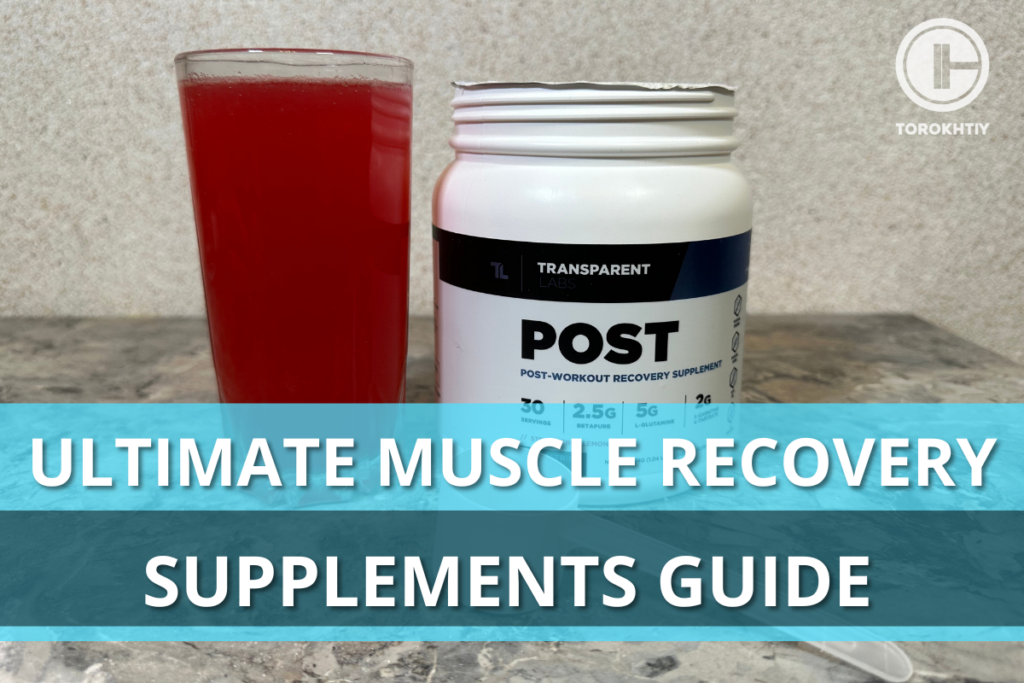
Why Do You Need Muscle Recovery Supplements?
| Supplement | Common Ingredients | Benefits | Best For |
|---|---|---|---|
| Post-Workout Supplements | Creatine- Beta-Alanine- Betaine- Polyphenols- L-Carnitine | Improved recovery- Reduced soreness- Improved performance while exercising | Those who already eat a balanced diet- Most Post-Workout Supplements are 0 calorie, so they’re perfect for cutting |
| Protein-Based Supplements | Protein Blend (Dairy or Plant-Based)- Carbohydrate Blend (Dextrose)- Additional Micronutrients (Vitamin D, Iron, Magnesium etc.) | Easy, high-quality source of calories and nutrients- Likely to improve performance and recovery if you’re not getting enough calories, protein and carbs in | Ideal for those who struggle to get enough carbs and protein- Many of these supplements are high calorie, making them ideal for bulking |
Before getting into the benefits of supplements for muscle fatigue and soreness, it’s worth noting that you don’t necessarily need them to recover effectively. There’s no substitute for getting proper nutrition and resting adequately.
However, recovery supplements can help your body’s recovery process after a tough training session, making them great for many athletes. Here are some of their benefits.
1. Easy Nutrition
This obviously only goes for the protein-based supplements on our list (protein powders, mass gainers, etc.), but these muscle recovery supplements are an excellent source of quick and easy nutrition. Those who already have their diet dialed in won’t benefit much from these supplements.
However, those who struggle to get enough calories and protein throughout the day will greatly benefit from getting a significant chunk of their daily protein and calorie intake in with a single shake. Not getting proper nutrition plays a major role in fatigue and soreness after working out, making these drinks valuable supplements to help muscle recovery.
2. Benefits of Recovery Enhancing Ingredients
This goes more for the pure post-workout formulas on our list, with one of the key benefits of these supplements being their combination of active ingredients including recovery-focused ingredients like l-carnitine and tart cherry powder; performance-focused ingredients, like beta-alanine; and ingredients that improve both recovery and performance, like creatine and betaine.
By containing a solid blend of these ingredients, you can improve your body’s ability to recover, as well as improving your performance in the gym.
What Are the Key Dietary Factors That Contribute to Post-exercise Recovery?
This primarily applies to the nutritional supplements on our list, but there are 2 key factors you’ll want to consider when looking for this type of supplement. These are protein and carbs, which are covered in more detail below.
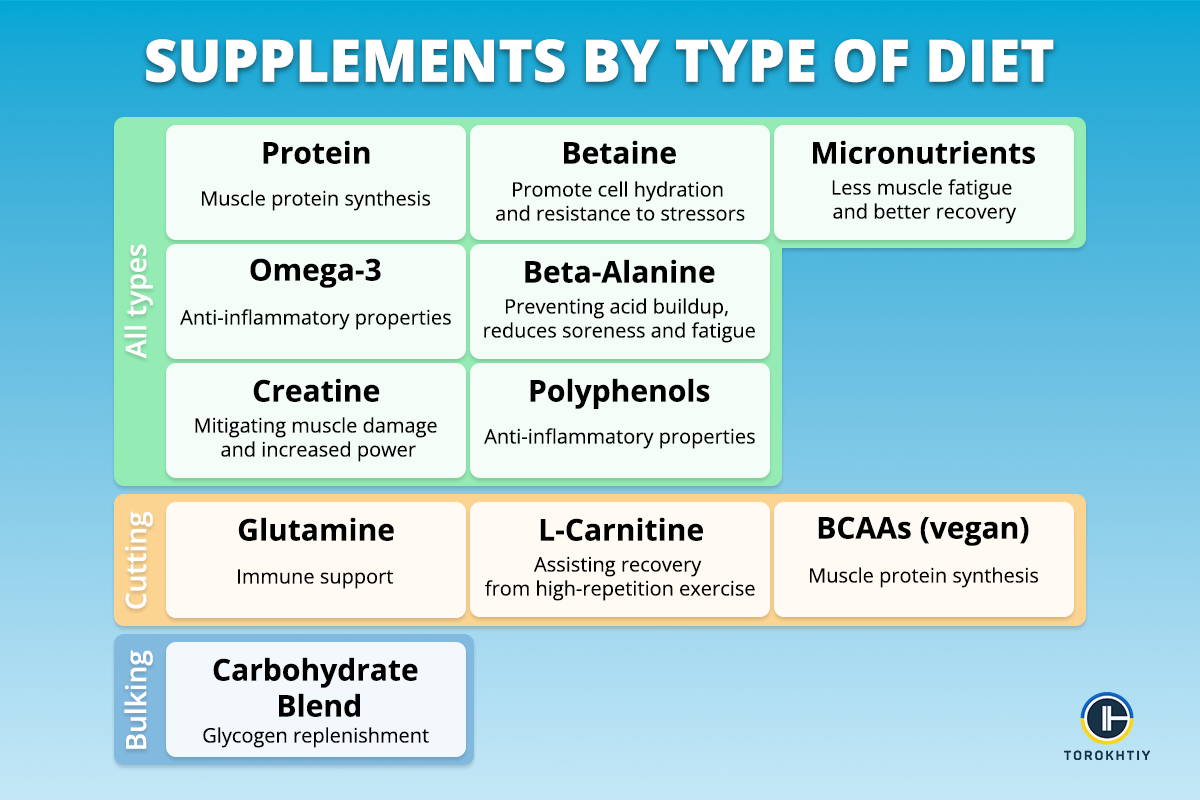
1. Protein (Repair)
As you probably already know, protein is the building blocks of muscle, and plays a large role in repairing and rebuilding the muscle fibers you damage during your workouts. What you might not know is that most of the hormones and neurotransmitters are highly dependent on amino acids. This makes getting enough protein crucial if you want to maximize recovery.
It’s worth noting that you may not need as much protein per day as you may think. For active individuals, it’s recommended you get around 0.7-0.9g of protein per pound of bodyweight everyday. It’s recommended you eat on the upper end of this range if you exercise with high frequency and intensity, or if you’re trying to lose body fat.
While many athletes can reach this range without supplementation, for those who struggle to get enough protein in, a nutrition-based recovery supplement can be a great option.
Our expert Ernesto Mendez said:
«Muscle recovery supplements play a crucial role in replenishing depleted macro nutrients, promoting muscle repair, and reducing inflammation following intense workouts.
My go to supplements are Creatine Monohydrate, Omega-3, Collagen and BCAAs (branched-chain amino acids) for maximal recovery during high volume and intensity training cycles for 8-12 weeks.»
2. Carbs (Refuel)
Although not as frequently discussed as protein, carbs play a major role in recovery as well. This is because carbs are most people’s main source of energy. Glycogen stores are depleted during a tough workout, meaning carbs are needed to refuel them. Similar to protein, most people will naturally eat enough carbs to recover effectively.
However, if you struggle with this, or eating enough in general, a high-carb protein shake can be a great solution.
It’s worth noting that many people choose to go on low-carb diets in order to restrict their calorie intake when trying to lose weight. While we don’t recommend this type of diet for optimal performance or recovery, many people find it helpful when trying to cut.
If you’re following a low-carb diet, you may be better suited to taking a zero-carb post-workout formula, or a low-carb protein supplement. Just keep in mind, the only thing that matters for weight loss is caloric deficit and the macro split does not matter – choose one that is most convenient for you.
Our expert Champion Jacek Szymanowski said:
«In my routine the most important recovery supplements will always be whey protein because in my case it would be almost impossible to get enough protein from my food – small stomach, and I like to start my food after 14:00. That should be a priority – daily protein intake.
Second, in terms of recovery I always try to pay attention to my hydration/electrolyte balance and make sure that I get enough salts when I train heavy and sweat more.
The last one in my recovery daily supplement is creatine monohydrate.
I also take omega-3 daily cause I don’t eat fish and that one actually plays a good role in recovery.
That’s it in terms of evidence based must-have.
In terms of supplements I take once for a while: Betaine, Tart Cherry, Ashwagandha and Tongkat Ali – but not like they are changing my game.»
Interesting fact:
«My most important thing for recovery is my 8-9h sleep. That is a game changer. Most athletes would benefit more from that than any other pill they could take.»
Personal tip:
«Get enough protein in your diet – 2.0g/kg and sleep min 8h. With rest, have fun and try it by yourself. Never compensate with supplements for poor nutrition and sleep habits.»
What Dietary Supplements Contribute to Better Recovery and/or Reduced Muscle Soreness?
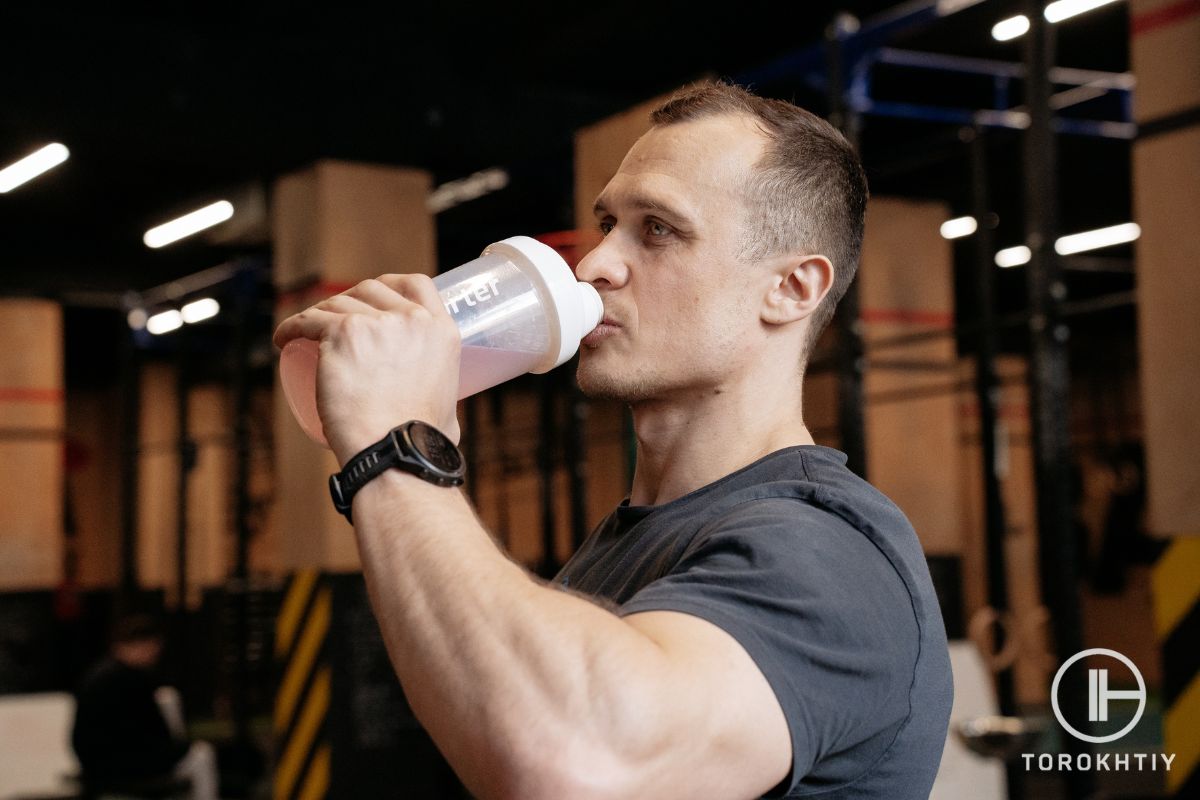
1. Creatine
On top of its other numerous benefits, creatine has been shown to aid with recovery.
While Creatine is most well-known for its benefits to high-intensity exercise performance, it also helps to improve recovery by mitigating muscle damage, and promoting faster recovery of lost force-production potential. This makes creatine one of the best all-around sports supplements you can take.
2. Polyphenols (Tart Cherry Powder, Pomegranate Extract, Curcumin, Etc….)
While the only polyphenol found in any of the products on our list was Tart Cherry Powder, these ingredients all have properties related to reduced muscle soreness. This is because polyphenols – found in fruits, and vegetables – have anti-inflammatory properties.
Some common polyphenols other than tart cherry powder include pomegranate extract and curcumin. While you can get polyphenols from extracts found in supplements, you can also find them in whole foods instead!
3. L-Carnitine-Tartrate
Found in many of the products on our list, L-Carnitine is one of the most common supplements for helping assist recovery.
While it’s often marketed as a weight loss supplement, it is widely regarded as useless in this regard. L-Carnitine is significantly more effective in aiding with recovery than it is with fat-loss, and is one of the science-backed ingredients for this purpose.
4. Omega-3 & Vitamin D
There are several vitamins and micronutrients that appear to assist in recovery and muscle repair as well, including omega-3s and vitamin D. While no supplements on our list contain omega-3s, Muscle Milk contains a solid 35% of the recommended daily value of Vitamin D.
If you’re interested in the benefits of Omega-3s, you can find them through dietary sources like fish, or through supplementation. Overall, these are some of the best vitamins for muscle recovery you can supplement your diet with.
Our expert Ernesto Mendez said:
“Muscle recovery supplements play a crucial role in replenishing depleted macro nutrients, promoting muscle repair, and reducing inflammation following intense workouts.
My go to supplements are Creatine Monohydrate, Omega-3, Collagen and BCAAs (branched-chain amino acids) for maximal recovery during high volume and intensity training cycles for 8-12 weeks.”.
5. BCAA
Finally, one of the common supplements marketed for recovery is BCAAs. While BCAAs may have benefits for people like vegans and vegetarians who don’t get enough protein in their diet.
Most people are already getting all the benefits of BCAAs through their diet. It’s worth noting that those deficient in BCAAs would be better off readjusting their diet instead of supplementing with BCAAs. Overall, these are largely “useless” for most people, and should not be prioritized when choosing a recovery supplement.
Our expert Sergii Putsov added:
«It is no secret the muscle recovery supplements play a pivotal role in helping to replenish depleted macro nutrients, fester repair muscles and reduce inflammation level after intense loads. I prefer to use omega-3 mandatory as a part of my diet. Also I include products like creatine, BCAA, glutamine during high volume and intensity cycles for 8-12 weeks.»
How to Choose the Best Muscle Recovery Supplements?
1. Consider the Type, Volume, and Intensity of Your Training
How you train, and what your goals are should play a major part in what type of recovery supplement is right for you. If you’re consistently training with high intensity, you will probably benefit from active ingredients like l-carnitine, and creatine.
However, those who don’t train very hard likely don’t need specific recovery supplements, as their body can likely recover well enough on its own. With that being said, regardless of activity level, most people can benefit from an ingredient like creatine because of its wide-ranging effects on overall health.
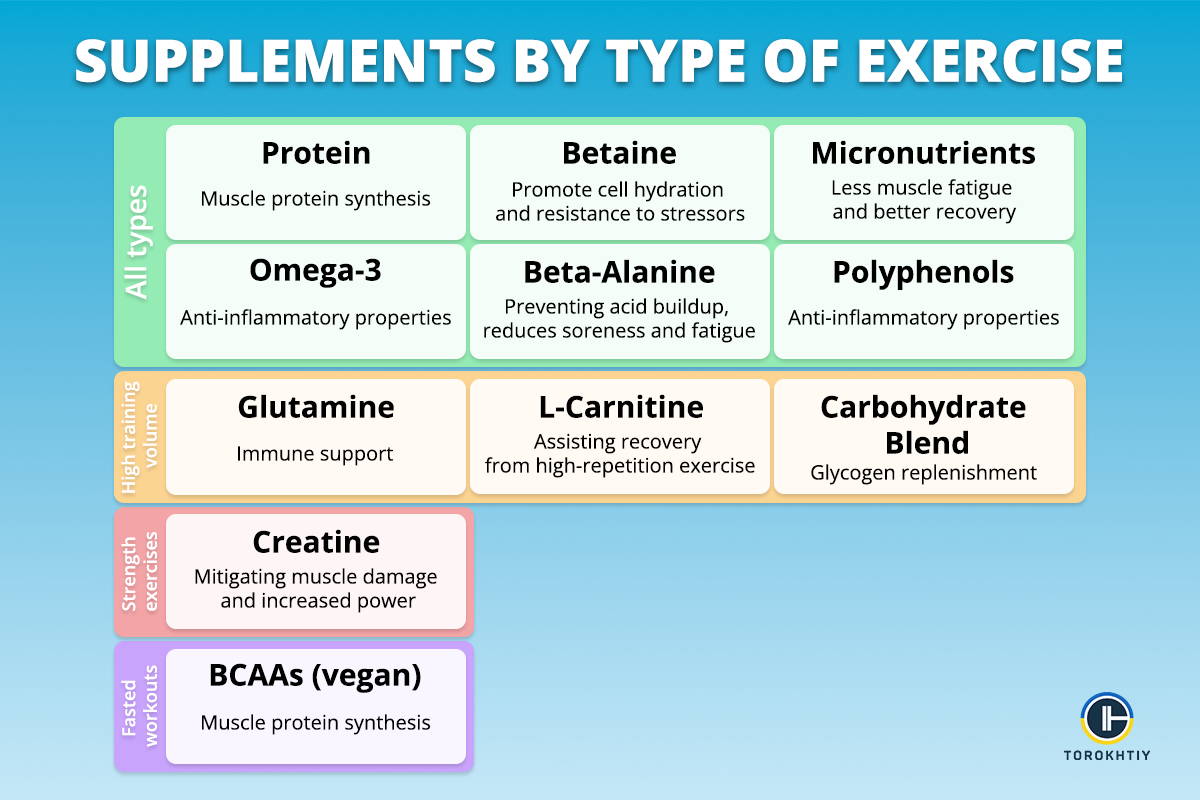
2. Understand Which Type of Supplement Is Right for You
This mainly comes down to what your diet looks like. If you’re already getting enough calories and protein in reliably, then you’ll benefit more from a pure post-workout formula.
However, if you struggle to get enough protein and calories in to maximize recovery, you’ll probably be better off taking a protein-based recovery supplement. With that being said, there’s nothing wrong with taking both!
| Criteria | Post-Workout Supplement Factors | Protein-Based Recovery Supplement Factors |
|---|---|---|
| Cutting | Creatine, L-Carnitine, Polyphenols, Betaine, Beta-Alanine, Vitamin D | Protein, BCAAs, Omega-3, Low calorie options |
| Maintaining | Creatine, Betaine, Beta-Alanine, Vitamin D, Polyphenols | Protein, carbs, Omega-3Low/Mid calorie options |
| Bulking | Creatine, Betaine, Beta-Alanine, Vitamin D, Polyphenols | Protein and carbs, Omega-3Mid/High calorie options |
3. Consider Multi-Component Supplements
Luckily, you don’t always have to choose between just protein-based supplements and ones with recovery enhancers. Some supplements on our list like Cellucor combine protein with active ingredients like creatine. Muscle Milk’s dense micronutrient profile may also give you some advantages in your training because of the inclusion of ingredients like Vitamin D.
Overall, these supplements may be your best option if you’re looking to double down on the benefits of added protein with carbs and recovery enhancers.
Post by Transparent Labs
- Form: Powder
- Type: Post-Workout Formula
- Best for: Cutting, Muscle recovery
- Flavor: Black Cherry, Orange, Strawberry Lemonade
- Key Ingredients: L-Carnitine, Tart Cherry Powder, Betaine, Beta-Alanine
- Additional Ingredients: L-Glutamine
- Package Information: 1.04lbs
- Serving: 15.7g
- Price per Serving: ~$1.67
- Company Founded: 2012
- Recommended by Athletes: Hafthor Bjornsson, Paul Sklar, Sean Harris
The main ingredients present in Post that are effective for muscle recovery are L-Carnitine and Tart Cherry Powder, while Betaine and Beta-Alanine are more useful for improving performance. L-Carnitine is frequently included in weight loss supplements, although it’s largely considered useless for this purpose. However, it does appear effective in assisting with exercise recovery.
Another unique ingredient in Post is Tart Cherry Powder, which appears to have moderate effects on exercise recovery as well. Post contains 2g of L-Carnitine, and 500mg of Tart Cherry powder per serving.
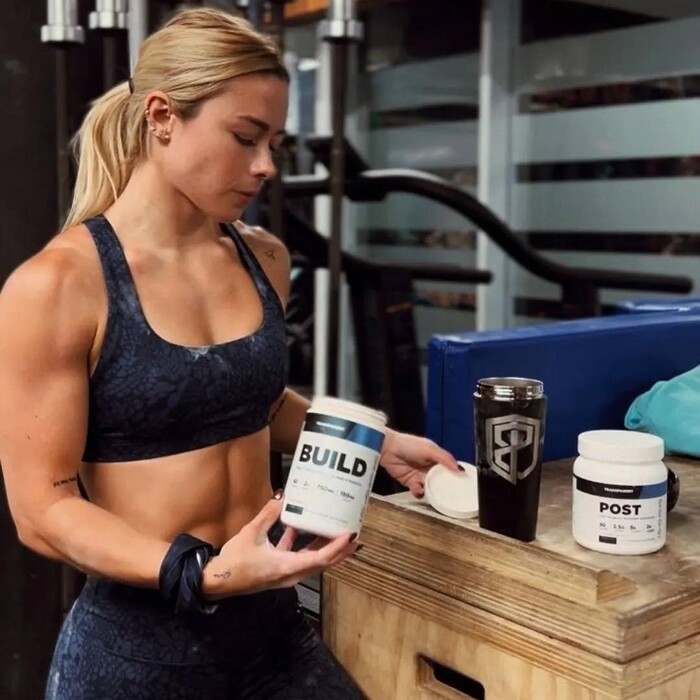
It’s worth noting that while Post also features L-Glutamine, its effects are likely minimal in most cases. However, some studies have shown that it improves recovery, as well as time to exhaustion.
Post will cost you around $1.67 per serving, making it relatively expensive for a post-workout formula, however it is undeniably high-quality with 4 main ingredients helping with recovery and performance. There are 3 flavors available, and it is made with 100% natural ingredients.
How to Use Muscle Recovery Supplements?
We always recommend following the instructions on any supplement to ensure you’re taking them properly. With this list featuring several different product types, uses may be slightly different.
Generally, for pure post-workout formulas, you’ll want to take one scoop mixed with 1-2 cups of water. You can use other beverages, but water will likely be best for any flavored supplements.
For any supplement that contains creatine, we recommend taking it everyday – regardless of whether or not you work out – to maximize its effectiveness. Of course, this applies to the basic creatine supplements on our list as well as the multi-ingredient post-workout formulas we covered.
For protein-based supplements like protein powder or mass gainers, mixing with milk will likely yield the best-tasting shake, but you can absolutely mix it with water as well. If you’re looking to add in some extra calories and micronutrients, feel free to blend your powder with bananas, frozen berries, and nut butters as well.
For these supplements, it’s also worth noting that nutrient timing is not nearly as important as you may think. Getting enough protein, carbs, and calories throughout the day is what matters. So, don’t think of these so much as post-workout drinks, but as general recovery supplements instead.

FAQ
What Helps Muscles Recover Faster?
There are 2 main types of supplements for faster muscle recovery. These are post-workout formulas made up of active ingredients that improve recovery, and protein-based supplements like protein powders and mass gainers.
Post-workout formulas contain things like creatine and l-carnitine which actively improve your body’s recovery processes. Meanwhile, protein-based supplements will help you recover by giving your body enough protein, carbohydrates, and calories to effectively repair and refuel after working out.
How Can I Speed Up My Muscle Recovery Naturally?
The best way to speed up recovery is to eat enough protein and carbs. Whether this is through a supplement or through whole food sources, if you’re not eating enough protein, carbs, or overall calories through the day, you’re likely not recovering as effectively as possible. Other factors that play into better recovery include getting enough sleep, and actively taking rest days.
Are Muscle Recovery Supplements Safe?
Yes! All of the supplements on our list are made up of high-quality research-backed ingredients that are not only safe, but are also effective in improving performance and muscle recovery.
If you’re concerned about the potential health risks of taking a supplement, or if you have any pre-existing medical conditions, we recommend consulting with your doctor before taking any muscle recovery supplement.
Are There Any Supplements That Reduce Lactic Acid Buildup?
So this topic is more complicated and we will explain it in another article if you want but Yes, it appears that one of the most common ingredients on our list, creatine, is effective in not decreasing but delaying lactate accumulation in some conditions.
Beta-alanine (carnosine precursor) has the ability to buffer hydrogen ions and that H+ accumulation is the possible cause of muscle failure during exercise. Lactates are not your enemy like many people think.
Conclusion
Overall, whether you’re looking for a pure post-workout formula, a protein-based supplement, or a basic creatine powder, after-workout recovery supplements are some of the best products to add to your supplement stack. Not only can they help you recover faster and more effectively, but they can significantly improve your performance in the gym as well.
When choosing supplements, make sure to consider your recovery needs and fitness goals. You also want to keep your diet balanced and stay hydrated to support your recovery process. Remember that supplements are an addition to your recovery, they can’t do everything on their own!
If you’re looking for a high-quality post-workout formula, we recommend POST by Transparent Labs. What do you think of these kinds of supplements? Do you have one you swear by? We’d love to hear what you think in the comments below!
Experts Who Contributed To This Article
Olympian with 21 years of Oly Lifting experience
20 years of Oly Lifting & Training experience
Orthopedic Clinical Specialist (OCS)
M.Sc.Eng. Biotechnology, Sports Nutritionist

Also read:
- Ashwagandha For Athletes
- Nitric Oxide Supplements Guide
- Best Post Workout Drink
- Powerlifters Diet
- Electrolyte Supplements Guide
References:
- Snoke, C; Boles, K; Daniels, J; Holum, A; and McKenzie, J (2021) “EFFECTS OF ACUTE L-CARNITINE SUPPLEMENTATION DURING LOW-INTENSITY TREADMILL EXERCISE,” International Journal of Exercise Science: Conference Proceedings: Vol. 8: Iss. 9, Article 15. https://digitalcommons.wku.edu/ijesab/vol8/iss9/15/
- Jeff S Volek, “L-Carnitine L-tartrate supplementation favorably affects markers of recovery from exercise stress” (NCBI, 2002 Feb) https://pubmed.ncbi.nlm.nih.gov/11788381/
- Tart Cherry Supplementation and Recovery From Strenuous Exercise (Journals, 13 Jan 2021) https://journals.humankinetics.com/view/journals/ijsnem/31/2/article-p154.xml?content=contributor-notes
- Eric T Trexler, “International society of sports nutrition position stand: Beta-Alanine” (NCBI, 2015 Jul 15) https://pubmed.ncbi.nlm.nih.gov/26175657/
- Amirhossein Ramezani Ahmadi, “The effect of glutamine supplementation on athletic performance, body composition, and immune function” (ScienceDirect, June 2019) https://www.sciencedirect.com/science/article/abs/pii/S0261561418301730
- Richard B Kreider, “International Society of Sports Nutrition position stand” (NCBI, 2017 Jun 13) https://pubmed.ncbi.nlm.nih.gov/28615996/
- Jen-Yu Ho, “l-Carnitine l-tartrate supplementation favorably affects biochemical markers” (NCBI, 2010 Aug) https://pubmed.ncbi.nlm.nih.gov/20045157/
- Daniel McDonough, “ORAL CREATINE HYDROCHLORIDE SUPPLEMENTATION” (Boisestate, December 2017) https://scholarworks.boisestate.edu/cgi/viewcontent.cgi?article=2454&context=td
- Tom Clifford “The Potential Benefits of Red Beetroot Supplementation in Health and Disease” Nutrients. 2015 Apr; 7(4): 2801–2822
- Dale R “Hyperhydrating with glycerol: Implications for athletic perfomance” Journal of the American dietetic association, February 1999
- “The Power of Pomegranate” NewsCenter
- Eric T Trexler “International society of sports nutrition position stand: Beta-Alanine” J Int Soc Sports Nutr. 2015 Jul 15;12:30.
- Richard B Kreider “International Society of Sports Nutrition position stand: safety and efficacy of creatine supplementation in exercise, sport, and medicine” J Int Soc Sports Nutr. 2017 Jun 13;14:18
- MAGI Euregio, Bolzano “Dietary supplements for improving nitric-oxide synthesis” J Prev Med Hyg. 2022 Jun; 63(2 Suppl 3): E239–E245
- Gene Bruno “Nitric Oxide Boosters” Smart Supplementation 2009
- Joaquín Pérez-Guisado “Citrulline malate enhances athletic anaerobic performance and relieves muscle soreness” J Strength Cond Res. 2010 May;24(5):1215-22
- Stephen J Bailey “Acute L-arginine supplementation reduces the O2 cost of moderate-intensity exercise and enhances high-intensity exercise tolerance” J Appl Physiol (1985). 2010 Nov;109(5):1394-403
- “3 supplements that may harm your heart” Harvard Health Publishing. January 1, 2021
- Photos made by Torokhtiy Media Team.
Why Trust Us?
With over 20 years in Olympic weightlifting, strength training, nutrition coaching, and general fitness our team does its best to provide the audience with ultimate support and meet the needs and requirements of advanced athletes and professional lifters, as well as people who strive to open new opportunities and develop their physical capabilities with us.
By trusting the recommendations of our certified experts in coaching, nutrition, and sports training programming, as well as scientific consultants, and physiotherapists, we provide you with thorough, well-considered, and scientifically proven content. All the information given in the articles concerning workout programming, separate exercises, and athletic performance, in general, is based on verified data.
The product testing process is described in more detail here.
Author: Oleksandr Maksymenko
Certified Sports Nutritionist,
MSc Sports Dietetics
Specializing in: Weight management, Fitness / Sports nutrition
Oleksandr is a professional fitness nutritionist certified by the Fitness Professional Association (FPA). He follows the principles of evidence-based dietetics and fosters a healthy relationship with food in his clients, ensuring there are no strict prohibitions on their favorite foods or frequent lapses. His primary goal is not only to achieve results for you but also to sustain them over the long term, all while enjoying tasty and delicious food.
Reviewed by: Jacek Szymanowski
Certified Nutritionist,
M.Sc.Eng. Biotechnology
Performance architect,
Strength and Conditioning Specialist
With over 30 years of fighting experience, specialization in nutrition coaching for athletes, and expertise in metabolic health and dietary strategies, Jacek offers a comprehensive approach to optimizing your performance and well-being. Backed by a Master of Science degree in Biotechnology, Jacek remains at the forefront of scientific advancements, ensuring that his coaching is always evidence-based and up-to-date.




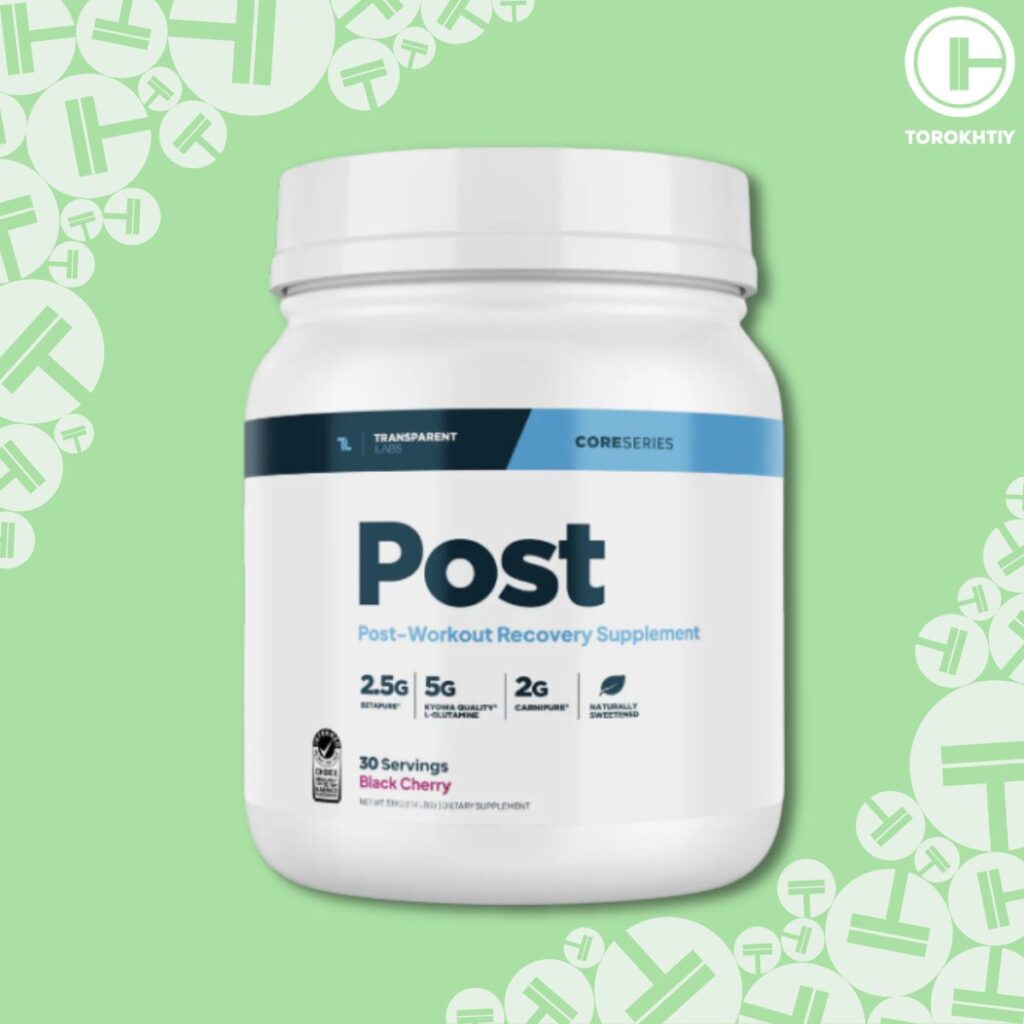
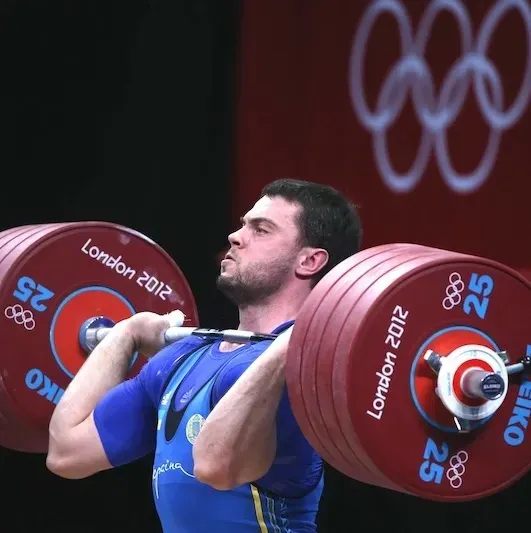



Still have questions after reading our article? Unlock your full potential by engaging with our experts and community! Don’t hesitate — leave a comment below and Oleksandr Maksymenko will provide a personalized answer and insights to help you reach your goals.